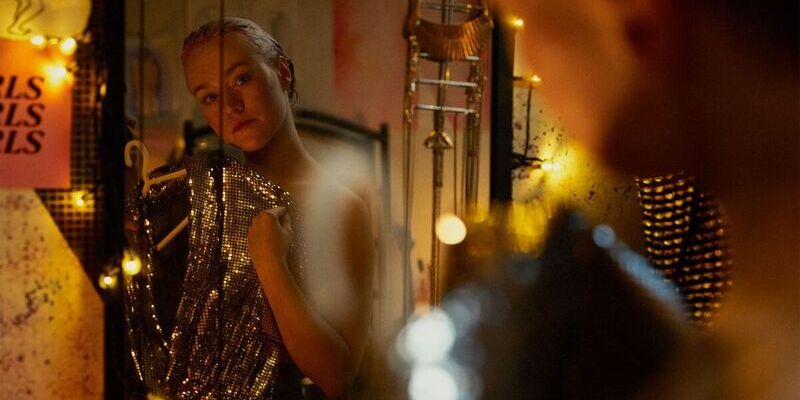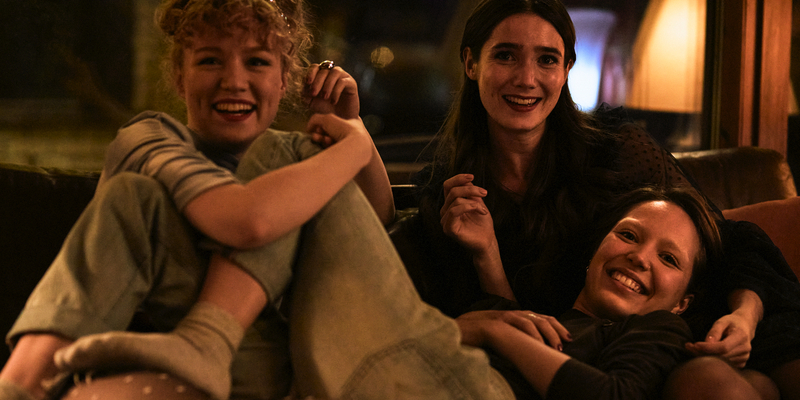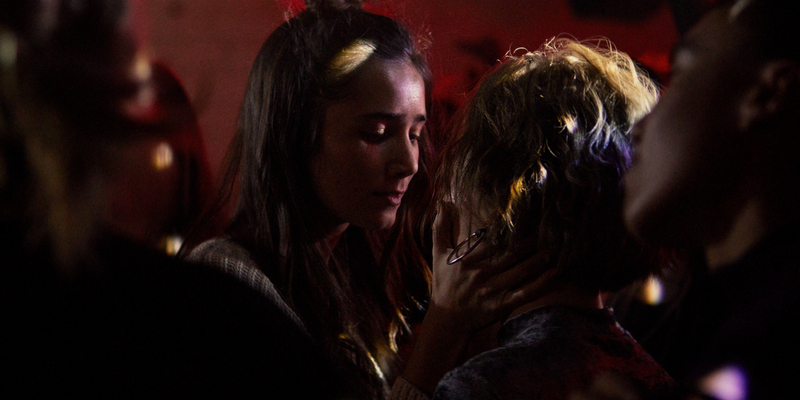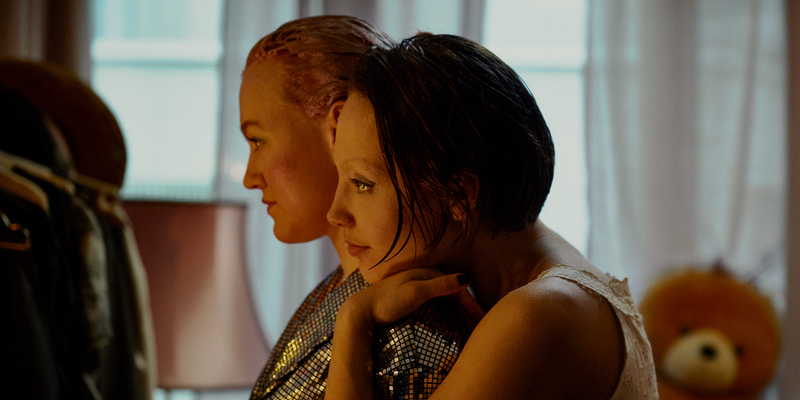
Review by
Benjamin Poole
Directed by: Alli Haapasalo
Starring: Aamu Milonoff, Linnea Leino, Eleonoora Kauhanen

I don’t mean to generalise, but female friendships, the bonds forged
between girls and women (or, indeed, men and women), are far more powerful
than the rough and tumble nonchalance of platonic male companionships. I
mean, I do have male friends who I love dearly, but the true support, the
conversations late late late into the night, the emotional interchanges;
that’s girl stuff. Along with, yes, the constant drama, petty jealousies,
and the all-conquering intensity of the connection that are characteristic
aspects of having female best friends, and which I wouldn’t have any other
way (being addicted to the above myself, of course). The affinity shared
by girls is the bedrock of Alli Haapasalo (director) and
Ilona Ahti and Daniela Hakulinen’s (writers) superlative
Girls Girls Girls, an utterly delightful and insightful representation of the phenomena of
close female friendships and another powerful entry into the teen girl
bildungsroman recently reaffirmed by the likes of
Booksmart
and Waffler fave
Eighth Grade.

The set up of Girls Girls Girls is simple, but, like the
best friendships, the ostensibly straightforward narrative retains a deep
and complex series of emotional truths and discovery. Over the course of
three Fridays (the mystical, adolescent promise of the weekend is a
prospect which, along with other aspects of teen existence, Ahti and
Hakulinen’s script intuitively understands), we follow three late teen
kids: Mimmi (Aamu Milonoff), a punkier, strident girl; Rönkkö (Eleonoora Kauhanen), who is shy but experiencing a burgeoning sexual awakening; and Emma
(Lineea Leino), who is a dedicated figure skater undergoing her own
crisis of faith.
Although on paper the representations sound stereotypical, you get the
sense with Girls Girls Girls that the girls are just trying
on these roles as a necessary part of growing up, as a way of footholding
their own identity, and to make some sort of mark on their contexts. In
other words, the archetypes do not define them. This is especially true of
Emma (probably the film’s most interesting, and liminal, character) who is
facing a push/pull between a lifetime of training, expectations of success
and a need to forge her own path.

Emma and Mimmi tentatively hook up, are in love by the next Friday and
it’s all over by final weekend (hardly a spoiler:
Girls Girls Girls authentically respects the amplified microcosms of teen
relationships and their doomed inevitabilities), while Rönkkö enters into
a few awkward (heterosexual) hook ups of her own. This is essentially
Girls Girls Girls’ lot r.e. plot, but the emotional charge is all in the beautifully
observed storytelling. Everyone is well aware of the awkwardness of early
sexual encounters, but do you remember the ineptitude of the first time
you went on a date to a restaurant? It was probably the only time you’d
been to one without your parents, and you didn’t have the first clue how
it worked, did you? Girls Girls Girls acutely recalls these minor, epochal moments, along with
sympathetically essaying the teen urge to self-sabotage, the deep
loneliness of being a kid (there is a moment of dancefloor abandonment
which just ended me), and the salvation found in friendship (again, it is
difficult to imagine a film as keenly intense being made about boys).

Haapasalo frames scenes imaginatively, with an eye for interesting
compositions throughout (Emma enacting a triple Lutz in the red-light
roadside of car lights elegantly spins to mind). It’s a canny visual style
that compliments the thoughtful subtlety of the script and performances.
All too often female friendships are done dirty by the teen film: the
binary oppositions of plastics, of mean and good girls. But what is most
refreshing about Girls Girls Girls is its generosity of
spirit for its denizens, the portrayal of love and forgiveness between
friends, its breezy refusal of cliché.

Girls Girls Girls is on Curzon Home Cinema now.

